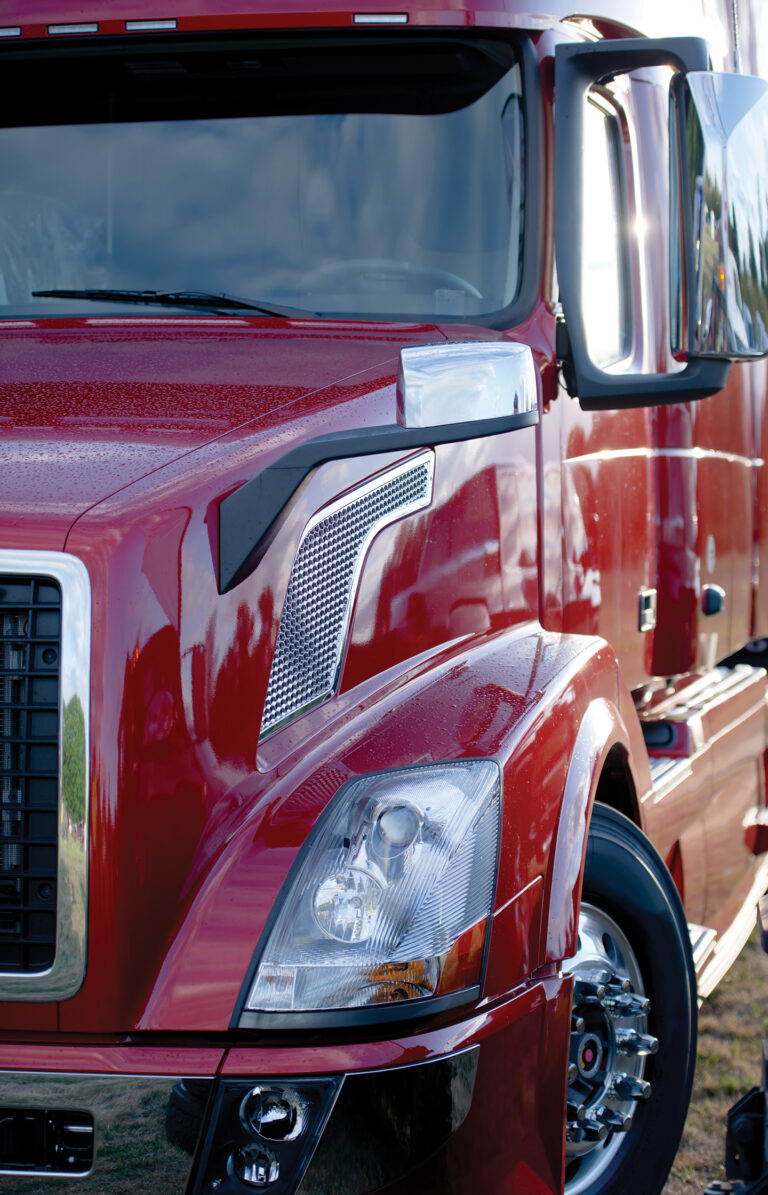Following the onset of the COVID-19 pandemic and the resulting social and economic turmoil of 2020, 2021 was supposed to be a “normal” year for business. It wasn’t.
The year started with positive news, including people getting vaccinated and the economy roaring back from the COVID-induced recession. But shortages of parts and materials, especially semiconductors, held back production of trucks, trailers and freight. The workforce that left their jobs due to the pandemic returned much more slowly than expected, causing labor shortages around the world.
So, with 2022 looming on the horizon, what’s in store for trucking, especially for single truck and small fleet owners?
That’s a question that trucking executives from carriers both large and small are trying to answer.
Today, container ships sit idle off both U.S. coasts, especially the ports of Los Angeles and Long Beach, California, where 40% of the nation’s imports are unloaded and sent on to their final destinations. While the headlines point to supply-chain constraints, what one carrier considers a problem can easily be a blessing to another.
Consider those container ships, for example. One reason they’re waiting to unload is the massive amount of freight being brought in. During the pandemic, warehouses were emptied to keep store shelves stocked. The products being delivered today were ordered to replenish those depleted inventories while still making products available at retailers.
Another reason the container issue is good for trucking is that railroads aren’t able to haul all those containers, leaving a percentage of them available to trucking. Some containers are unloaded at cross-dock facilities, with the freight reloaded into dry van or refrigerated trailers.
Domestic industries are producing at high levels, too, although the inability to obtain needed parts is keeping them from maximum production.
The end result is that freight is plentiful, and the rates to haul it remain near record levels. When freight is this good, carriers generally increase the size of their fleets to take advantage of the revenue opportunities. This time, however, increasing fleet size isn’t so easy. Production of new trucks, hampered by parts availability, is so far behind schedule that a new truck ordered today won’t be delivered for more than a year. Prices are sky high, both for new and used trucks.
Carriers are also reporting increased difficulty finding drivers. Many companies are increasing pay and offering bonuses to attract new drivers.
All of this begs the question: If carriers can’t buy enough trucks or hire enough drivers, who hauls all that available freight?
If you own a truck, it could be you. If you’re running under your own authority, spot rates have been at or near record levels for months, and are expected to remain so. If you prefer to lease your equipment to a carrier in an independent-contractor arrangement, you may be able to find more cents per mile from carriers that are turning to owner-operators to foster growth of their fleets.
Conditions for profitable operation are expected to last well into 2022, and possibly even longer. Another benefit of plentiful freight is the ability to choose your lanes. There’s less competition than usual, so it’s easier to find longer hauls or hauls into desirable areas
If you’re thinking about purchasing a truck, however, expect that it will be hard to find — and you’ll pay more. If you already own a truck, take good care of it. You might be stuck with it for a while.
Two major negatives for a trucking business are fuel prices and inflation. Prices for food and many other products have been on the rise. Those prices will remain high, or they might go back down as the economy recovers, depending on which economist you’re following today. It will definitely cost more to purchase a truck, and that holds true for parts and repairs, too.
Another potential downfall of inflation is interest rates. Inflation often results in an increase in interest rates as the government attempts to keep rising wages and prices under control. If you’re thinking about purchasing a truck on credit, watch for interest rate increases.
In addition, diesel fuel prices have risen to their highest point since October 2014 and aren’t expected to decline any time soon. Demand for oil has increased significantly as the global economy returns to normal. In many cases, fuel surcharges make up for most or all of the increased fuel costs, but truck owners must be diligent about making sure total compensation covers the fuel cost.
It’s important to note that trucking is a cyclical business. When there aren’t enough trucks to haul all the freight, rates go up and more trucks are sold. At some point, the balance tips the other way and there are too many trucks. That condition drives rates downward. It’ll happen this time, too, but since carriers can’t buy all the new trucks they want, the current conditions should last a while longer.
Even the best of conditions don’t guarantee success, however. It’s always a good idea to arm yourself with the latest industry news and information. Industry publications like The Trucker (thetrucker.com) are a good place to start. Larger carriers often use industry analysts to provide more detailed information. Firms like ACT Research (actresearch.net), FTR Intel (ftrintel.com) and Cass Information Systems (cassinfo.com) offer in-depth analysis, but charge their clients for the information. All of them, however, offer free email newsletters and blogs that can help any trucking business owner keep up with current conditions — and, of course, The Trucker works to keep its readers apprised of information provided by these services.
Load boards like DAT (dat.com) and Truckstop.com offer general pricing trends and other information. If you subscribe to these or other load boards, you’ll be able to get a feel for freight availability and rates in different parts of the country.
The coming year looks to be a good one for truck and small fleet owners. It’s important to learn as much as possible about the freight market, and budget carefully against the day when conditions turn downward. Owners who manage their business carefully, including keeping debt under control, can see success in the coming year.
Cliff Abbott is an experienced commercial vehicle driver and owner-operator who still holds a CDL in his home state of Alabama. In nearly 40 years in trucking, he’s been an instructor and trainer and has managed safety and recruiting operations for several carriers. Having never lost his love of the road, Cliff has written a book and hundreds of songs and has been writing for The Trucker for more than a decade.












Insightful glimpse into the trucking industry’s evolving landscape post-COVID. Challenges and opportunities intertwine, urging prudent strategies. An informative roadmap for truck owners to navigate uncertainties and thrive. Check out TaxZerone: an IRS-authorized e-file service provider simplifying IRS form filing for businesses and individuals, ensuring security and ease.
Visit: www.taxzerone.com